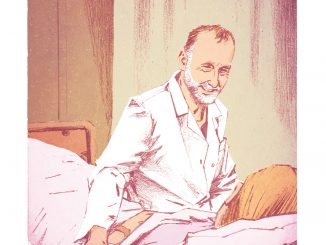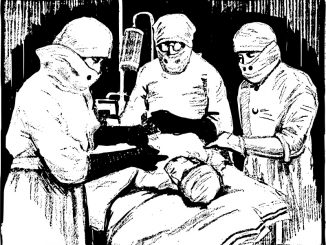People with cancer have time to think. Not every patient will think about spiritual matters, but most of us probably do, either alone, or when talking with close family or friends.
 People with cancer have time to think. Not every patient will think about spiritual matters, but most of us probably do, either alone, or when talking with close family or friends. This spiritual questioning may never have a satisfactory conclusion. Loved ones aware of the struggle can be left questioning why important support was absent during the last weeks of life.
People with cancer have time to think. Not every patient will think about spiritual matters, but most of us probably do, either alone, or when talking with close family or friends. This spiritual questioning may never have a satisfactory conclusion. Loved ones aware of the struggle can be left questioning why important support was absent during the last weeks of life.
The need for spiritual support is readily identified in palliative care. It represents a problem for clinical and care professionals – they can be asked the questions but are not trained to help find answers. Handing the problem over to ministers of religion is not a solution. Many patients reject a particular brand, or any brand, of faith. Spirituality is not an issue of religion.
The questions often start with the simple “why me?” The answer of course is “why not you?” – cancer does not discriminate between the good and the bad, and it does not spare someone just because there are people who depend on them. Such answers will challenge those who believe in an allpowerful god.
The search for a miraculous cure can be based on religious belief. What does “successful prayer” depend on? The quantity of faith built up over a lifetime? The earnestness of those praying? Feelings of inadequacy and personal guilt about having cancer are quite common.
Then there is the journey to heaven. In some faiths heaven seems to be a promotable destination. For someone with cancer, doubts can cause the ‘brochure’ to look less glossy. There is no website to consult and heaven is a bit short of bloggers.
Those who belong to no faith may ask the same questions but in a different way. Is there such a thing as god? Where do I go when I die?
The question for the cancer community is how we put support in place. It must help people identify the questions they need to address and find their personal answers. Ministers of religion may help someone from their own tradition. A psychologist may provide counselling in a dispassionate manner, but if the counsellor has little relevant life experience it will be shallow. This is not an area for earnest young people. Perhaps we should seek older people to train as spiritual counsellors.
However, whether old or young, we have no training resources, no curriculum, no assessment criteria and no practice guidance to ensure counsellors work within boundaries, which themselves have yet to be defined. What we do have is a lot of words in a lot of reports about the need for spiritual support. There is certainly a body of work to be undertaken.
Roger Wilson is the President of the advocacy group Sarcome patients Euronet





